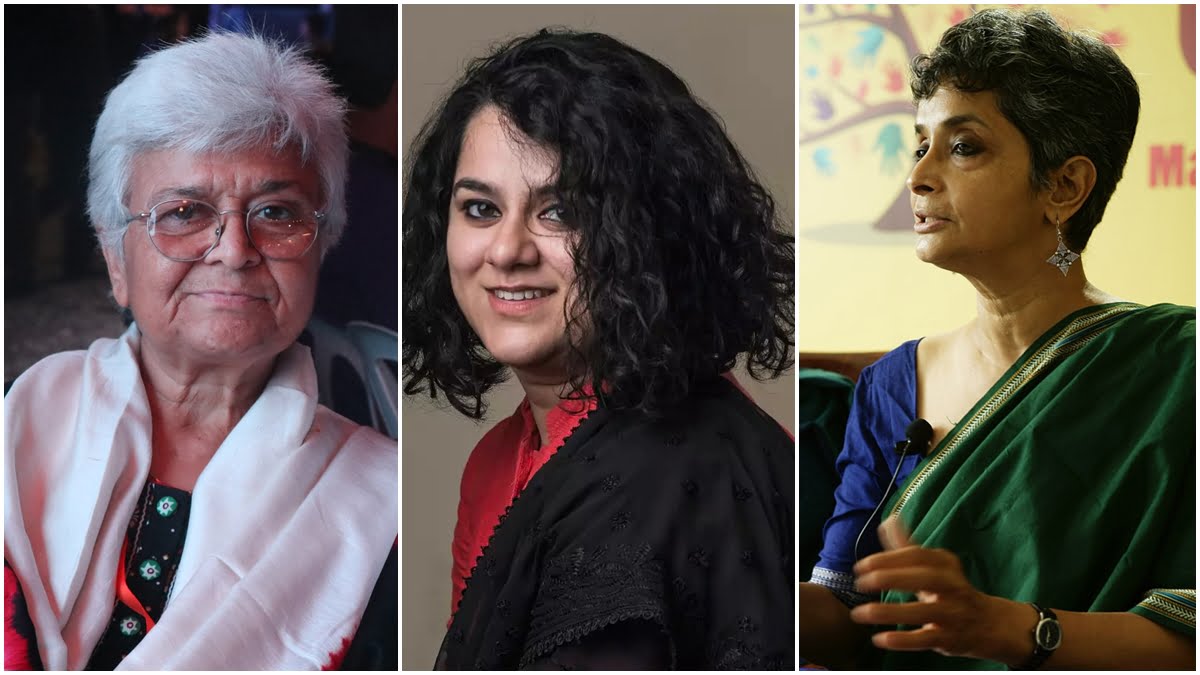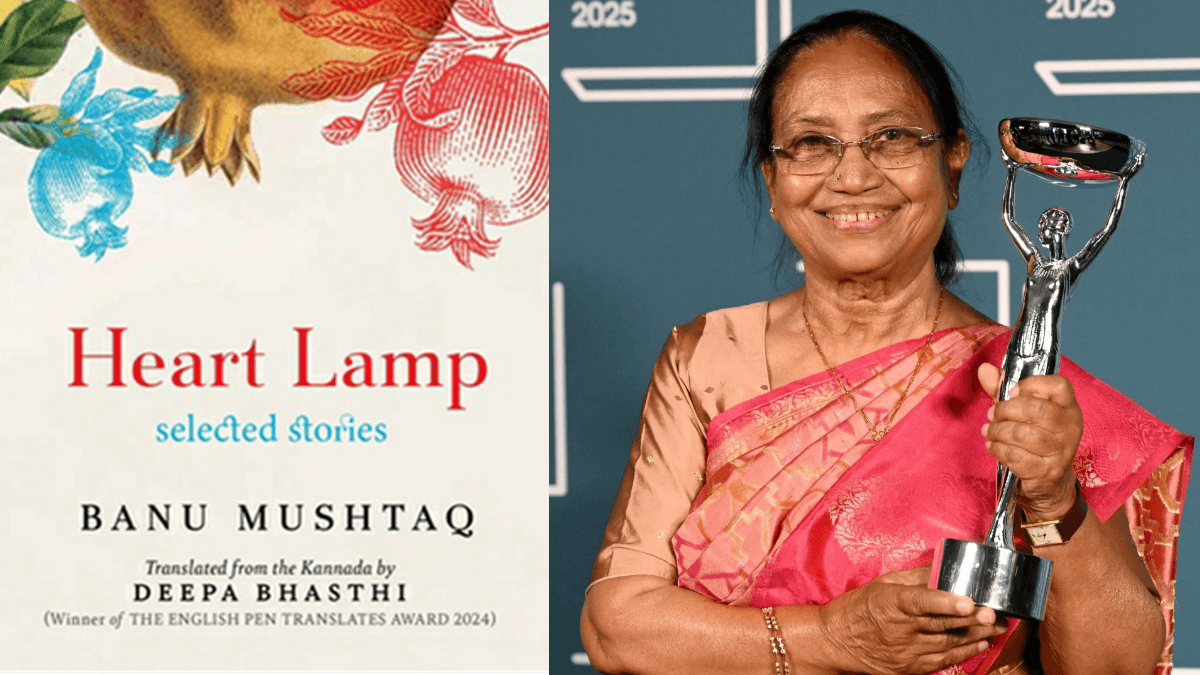Feminism as a concept as well as an ideology continues to be misinterpreted and stereotyped. One of the most authentic ways is to read about feminism, but many of us find it difficult to read or do not have enough time and resources to pick up a book. In that case, we have got you covered with some quality recommendations of short talks and interviews by renowned feminist thinkers and activists, which could help deepen your understanding of the subject. This is not an exhaustive watch list, but it is definitely something to start with, to navigate your way towards taking a step forward in constructing a positive discourse to understand feminism.
This is not an exhaustive watch list, but it is definitely something to start with, to navigate your way towards taking a step forward in constructing a positive discourse to understand feminism.
Also read: Your Essential Reading List to Understand The Feminist Movement Better
1. Kamla Bhasin
Kamla Bhasin, is an Indian feminist activist. She is well-known for her poem Kyunki main ladki hoon, mujhe padhna hai. She has written commonly about understanding patriarchy and gender issues. Some of her other important writings include: Borders & Boundaries: Women in India’s Partition (1998), What Is Patriarchy? (1993), and Understanding Gender (2000).
Feminism For All
In her 28-minutes long TedEx talk in September, 2017, Bhasin, shares her journey of becoming a feminist and how she was sexually abused during her early years by fourteen different men, from a local tailor to men known to the family. My favorite line from this talk is “Cultures don’t make human beings, human beings make cultures” which goes on to imply that cultures are ever evolving. She focuses on a wide range of issues in her talk; the plurality of feminism and feminists, how feminism is local as well as global, how intersectionality works in oppressing women, questioning our cultures, and sexism in the Bollywood movies and songs.
Patriarchy Dehumanises Men
Bhasin, starts with a very interesting question ‘Oh my heart, are you a man or a woman?’ and asks you to answer it by the end of her talk. She beautifully states that the “nature makes diversity but not hierarchy, not inequality.” Bhasin believes patriarchy is a social structure in which men are considered to be superior and have powerful hold over resources, decision making, and ideology. It is a must watch to understand how patriarchy not only oppresses women but men also.
Kamla Bhasin believes patriarchy is a social structure in which men are considered to be superior and have powerful hold over resources, decision making, and ideology. It is a must watch to understand how patriarchy not only oppresses women but men also.
2. Chimamanda Ngozi Adichie
Chimamanda Ngozi Adichie is a Nigerian feminist writer. Some of her works include: Americanah (2013), The Thing Around Your Neck (2009), and Half a Yellow Sun (2006). She was awarded the MacArthur Award in 2008.
We should All Be Feminists
In her TedEx talk in December, 2012, Adichie openly explores how the word feminist and the idea of feminism are loaded with stereotypes. She focuses on a wide range of issues in her talk including: The process of normalisation, invisibilisation, gendered pay-gap, differential treatment and raising of girls and boys, culture and gender. This TedEx talk was later adapted into an essay book on contemporary feminism in 2014.
“Dear Ijeawele” And Raising A Child To Be A Feminist – The Daily Show
It is a small clip of the talk show based on her famous book: Dear Ijeawele – A Feminist Manifesto in Fifteen Suggestions. Adichie, shares that the book came out from her emails shared with her friend. In this video, Adichie talks about raising a child to be a feminist, breaking the stereotypes of gender roles and norms, the idea of chivalry, and a very crucial issue of considering marriage as an achievement for women.
3. Nazia Erum
Nazia Erum, is the author of ‘Mothering a Muslim’, which came out in 2017. The book is based on a research conducted by her about the experiences and anxieties of Muslim mothers. She is also a columnist with leading media houses, a TedxSpeaker and founder of The Luxury Label.
Manthan #234 With Nazia Erum On Mothering A Muslim, Why Every Indian Must Worry
Nazia shares her experiences around that she went through while writing the book ‘Mothering a Muslim’. She addresses the public as a ‘mother’. To understand feminism, it is important to provide a platform to mothers and hear their voice, opinions, experiences, anxieties, and fears. She makes us aware of her identity, which is defined as a mother of a Muslim child in India, especially in the context of the changing political rhetoric around us. The book brings together the conversations that takes place in classrooms and playgrounds of our educational institutions. The book is a must read to understand how political discourse enters educational institutions.
Mothering A Muslim In Times Of Hate: How Communal Bullying Has Taken Root in India’s Schools
In this interview, Nazia highlights the issue of communal bullying in educational institutions. The students she interviewed are from well-reputed schools and belonged to upper-middle class families, which you can read in her book. The book provides a list of schools, so to get an idea that communal bullying does not happens in the particularly stereotyped schools. She points out that we read and speak about Muslim men and women, and never about ‘Muslim Mothers’. She asserts on how this area needs to be well-researched and should be given a platform for discussion.
Nazia Erum points out that we read and speak about Muslim men and women, and never about ‘Muslim Mothers’. She asserts on how this area needs to be well-researched and should be given a platform for discussion.
Also read: 6 Books By Indian Women With Disabilities On The Unequal Society
4. Nivedita Menon
Nivedita Menon is an Indian feminist writer and a professor of political thought at Jawaharlal Nehru University. Some of her work include Recovering Subversion: Feminist Politics Beyond The Law (2004), Power and Contestation: India since 1989 (Global History of the Present) (2007), and Seeing Like a Feminist (2012).
On Gender And Sexuality In South Asia
Menon discusses how patriarchy changes forms across time and space. She delves into the Indian culture and the presence of various gender identities that co-exist along with the binaries of males and females. She focuses on a wide range of issues: masculinity in Indian context, patriarchy, degrees and kinds of consequences of transgressing gender norms, and many other crucial issues around gender.
Gender: Issues, Movement And Interrelation with Communal Politics
Starting the conversation with relationship between women and communalism, Menon discusses two aspects, first, women’s and men’s body as markers in different cultures, and second, women as active participants in communal violence.
This is by no means an exhaustive or representative list. Suggestions to add to the list are welcome in the comments section.
Swati Shukla is a postgraduate in Education with a specialisation in Early Childhood Care and Education, from the School of Education Studies, Ambedkar University Delhi. Her research interest is understanding gender issues in education. She can be found on Twitter, Instagram and Facebook.
About the author(s)
Swati Shukla is a postgraduate in Education with a specialization in Early Childhood Care and Education, from the School of Education Studies, Ambedkar University Delhi. Her research interest is understanding gender issues in education.





You should have included dalit and adivasi feminists to this discussion. Bringing in the perspectives of the most marginalised groups and the contribution by the feminists coming from within the movement to the wider feminist discourse in the country cannot be undermined.